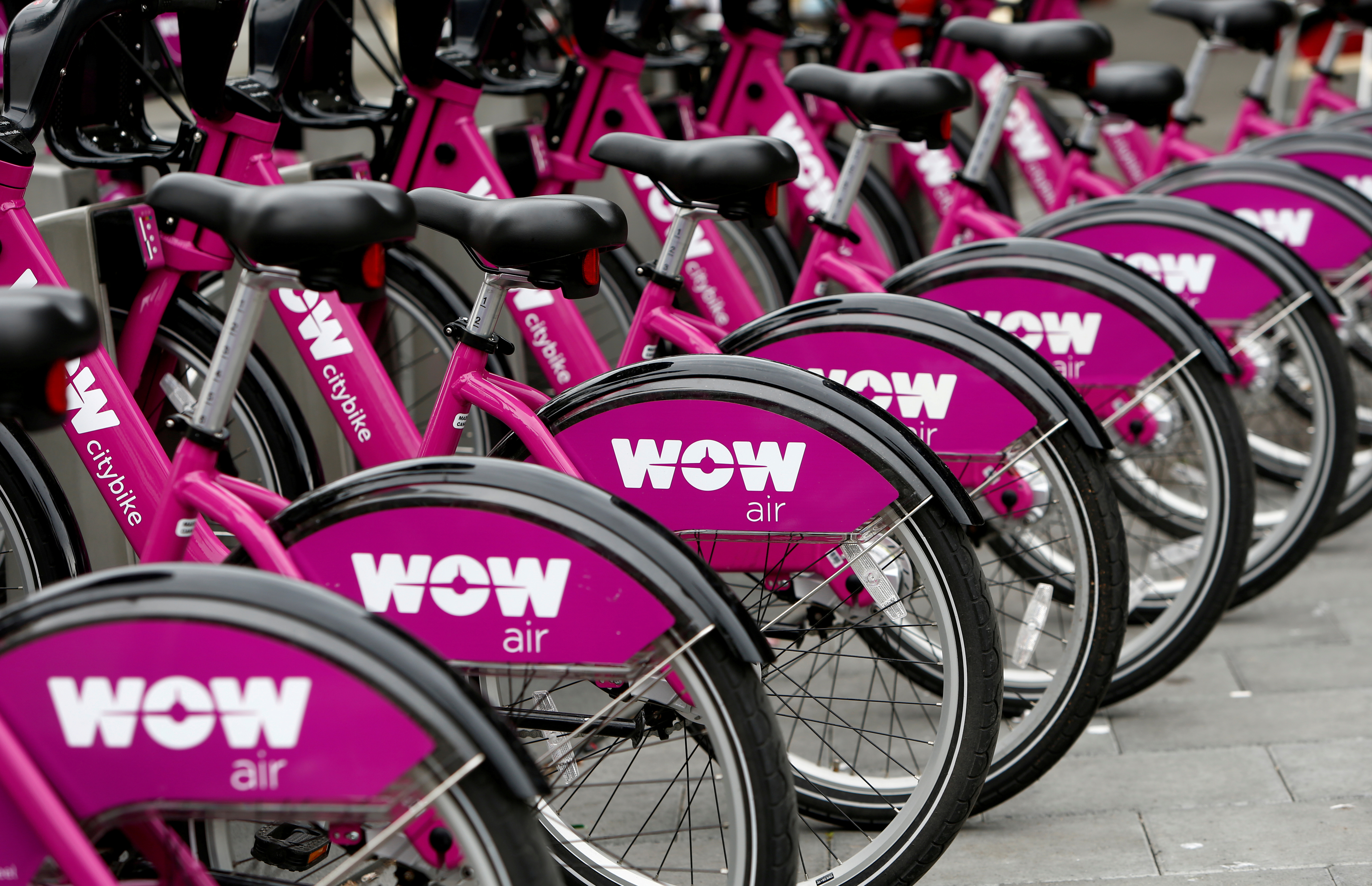Icelandair scraps plan to buy its rival WOW air, shares tumble
The failure of the merger could also knock Iceland's economy, which has become increasingly reliant on tourism.

Icelandair said on Thursday it had scrapped its all-share deal to buy WOW air that had aimed to create a stronger international competitor, sending its shares down 10 percent.
Privately-held WOW air, which has been reducing the size of its fleet and said its cash flow was under pressure due to stricter terms from creditors and lessors, said it was looking at other opportunities but did not give details.
Scrapping the merger follows the collapse in October of Icelandic-owned and Copehagen-based Primera Air, highlighting intense industry competition that has also driven Air Berlin and Britain’s Monarch Airlines out of business.
The failure of the merger could also knock Iceland’s economy, which has become increasingly reliant on tourism. The central bank has said concerns about WOW air’s financing have been weighing on the krona in recent weeks.
“The planned acquisition of Icelandair Group of WOW air will not go through,” Bogi Nils Bogason, interim president and chief executive of Icelandair Group, said in a statement. “This conclusion is certainly disappointing.”
Icelandair had announced on Nov. 5 that it had agreed to buy its Icelandic rival provided conditions were met by Friday, when its board was expected to recommend the merger to shareholders.
Icelandair said it had canceled the plan because those terms were unlikely to be achieved by the deadline, although it did not say what the conditions were.
This week, Wow issued a statement listing its challenges, including the cancellation of deal it had been working on to sell and leaseback aircraft. It said this had resulted in $25 million less cash inflow than planned.
It said it was seeking long-term funding after “a number of external and internal events have worsened significantly” since it raised 60 million euros in three-year bonds in September. It called the funding initiatives “a necessity for the business”.
Wow said its position been had affected by “bad publicity about the financial health of the company”, as well as higher oil prices.
“All the company’s lessors, creditors and authorities have been monitoring the situation even closer and demanded stricter payment terms then before further putting pressure on the company’s cash flow,” it said in this week’s statement.
Wow spokeswoman Svanhvit Fridriksdottir said the firm was making good progress in pursuing other opportunities and said ending the merger deal would not affect operations.
Sydbank analyst Jacob Pedersen said the impact of higher oil prices this year and the challenges facing parts of the airline industry “seem to have landed on Iceland”.
Flagging how the health of its airlines could affect Iceland’s economy, the central bank said this month a 14 percent fall in the value of the krona against the dollar since September was “due to some extent to temporary uncertainty about domestic airline WOW air’s financing.”
Both Icelandic airlines use Iceland’s Keflavik Airport as their main hub between Europe and North America. Together they control a 3.8 percent share of the transatlantic market.
Icelandair has lowered its guidance for earnings before interest, tax, depreciation and amortisation (EBITDA) twice in 2018.
Reporting by Tommy Lund and Izabela Niemec in Gdynia, additional reporting by Emil Gjerding Nielson in Copenhagen.